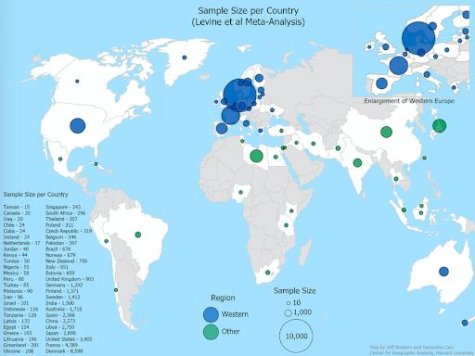BOSTON — Could the future of humankind be at risk thanks to declining sperm quality among men worldwide? Apparently not. The threat of falling sperm counts has been greatly exaggerated, according to new research out of Harvard University.
It’s been claimed humans are facing extinction over the supposed drop in quality. But previous studies were based on a number of “scientifically and ethically problematic assumptions,” say fertility experts. They say that sperm count vary within a wide range, much of which can be considered non-pathological and species-typical.
Above a critical threshold, more is not necessarily an indicator of better health or higher probability of conception. The Harvard researchers named the phenomenon the “Sperm Count Biovariability hypothesis.”

“The extraordinary biological claims of the meta-analysis of sperm count trends and the public attention it continues to garner raised questions for the GenderSci Lab,” says study co-author Sarah S. Richardson, in a media release. Richard is the founder and director of the experimental workshop which analyzes bias and hype in the sciences of sex and race.
In 2017, a landmark study showed a 59 percent cut in Western sperm counts from 1973 to 2011. The study of 124,000 men in Europe and the U.S. found quality is reducing by two percent annually.
But Richardson and colleagues write the steep declines since the ’70s take for granted that they were the optimum in English speaking nations. And it does not predict failing fertility, with the idea it’s directly linked to sperm count unsupported by any available evidence.
It also proposes lower sperm counts are caused by exposure to hormone-disrupting chemicals. But this is not backed by any geographical and historical patterns, the study finds.
“By proposing an alternative approach to sperm count data, we aim to contribute to the burgeoning discussion among reproductive health scientists and other researchers and clinicians about men’s health,” says Boulicault, a graduate student in feminist science studies.
Earlier studies on declining sperm counts have caused unnecessary ‘panic’
It’s been argued by some, including men’s rights and white supremacist movements, that fertility and health is endangered by ethnic and racial diversity. The original startling discovery by Dr. Hagai Levine and Dr. Shanna Swan made headlines around the world.
But writing in Human Fertility, Boulicault’s team argue that it’s “unsound and embeds unethical racist and colonial assumptions.” They slam the use of two categories in analyzing sperm counts, labelled “Western” and “Other”.
“These statistical aggregations obscure the diversity across rural and urban locations within nations, and disguise the fact there is very limited data on individuals’ sperm counts in countries Levine et al. categorized as ‘Other,” the study concludes.
They question the “panic” over the apparent trends, which have led to “apocalyptic claims about the possible extinction of the human species.”
Pesticides, stress, smoking and junk food diets have also been linked to decreasing sperm quality, along with drinking too much.
SWNS writer Mark Waghorn contributed to this report.
